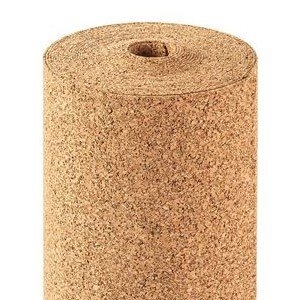Antivibration Cork
Advanced Seals & Gaskets Ltd offer a range of cork materials and products. All cork has anti-vibration properties, however, the type used will depend on the application and the exposures such as the temperature range, fuel, oil and certain chemicals. Cork materials are manufactured in sheet and roll form in a range of standard thicknesses, enabling us to quickly convert these into usable products such as pads, gaskets, washers and strips. Our on-site adhesive and laminating service allows us to not only laminate layers of cork but also enables us to supply the products with a range of self-adhesive, foil and even layers of other materials.
What is Antvibration Cork?
All cork can be used as insulation against vibration, however, cork bonded with synthetic rubber such as EPDM, neoprene, Nitrile or SBR increases the material's flexibility and gives it resistance towards oils, acids and higher temperatures. Cork material itself is manufactured in roll form or sheet form giving customers the freedom to cut their own sheets, gaskets, pads, strips etc. in various sizes as and when they are required. Antivibration cork products can be manufactured and supplied with a choice of finishes including foils, self-adhesives or laminated with other materials to create composite sheets which add further properties.

Material Enquiry
For information on Antivibration Cork please complete the following quick enquiry or call us on +44(0)1384 252555.
Specification & Key Characteristics
- Reduce vibration
- Absorb shock and structure-borne noise
- Weather Resistance Ozone resistance
- Available in thicknesses up to 50mm without laminations (depending on grade)
- Easy to fabricate
- Retains original shape under compression
Full technical data can be supplied upon request,
or downloaded from our online portal.
Help and guidance
If you would like to speak to a representative to discuss your specific application or requirements please call our sales office direct on 01384 469100, alternatively you can send an E-mail. Simply click on the link and forward us your details along with your question and we will contact you immediately.
Samples - Technical Antivibration Cork
Samples can be submitted for testing upon request.
Call now for sample requests or further help.
Why use Antivibration Cork?
Antivibration cork is used for the reduction of noise and vibration, usually produced by heavy machinery or equipment. The high level of vibration or shaking caused by such machinery not only causes further damage to surrounding foundations and creates an unsafe environment for workers, but can also create excess noise leading to hearing impairment.
Cork as a material is safe to work with as it is non-toxic and doesn’t shed like some foams and fibrous materials meaning it will not cause irritations to those with allergies. The use of antivibration cork is to stop any machinery from becoming unsteady and moving, again which is a safety risk to employees, but also reduces wear and tear on the device itself. Cork sheets or pads can be cut to size using basic knives or blades, and will easily adhere to floors, walls and ceilings.
Benefits of Antivibration Cork
- Sound Suppression
- Thermal Properties
- Bonded with other materials based on application
- Anti-Vibration
- Resistance to weathering
- Resistant to fuel/oils (depending on rubber compound used)
Different Grades of Cork Available
Along with natural cork, there are other different grades of cork used within many industries each with its own unique characteristics, depending upon the material it is blended. Grades of cork include Neoprene Bonded, Nitrile Bonded and Resin Bonded
Neoprene bonded cork is suited to sealing at higher temperatures and resistant to weathering and oil. Neoprene Bonded cork is suited to oil, engineering, electrical, anti-vibration and soundproofing applications.
Resin-bonded cork – a lightweight, flexible cork, produced using cork granules bound together using a synthetic resin. This grade of cork is resilient to certain acids and is often used in water retaining applications.
Nitrile bonded cork – manufactured using a combination of cork and nitrile rubber granules, giving a speckled appearance. Gaskets made from this material can be used where oil and fuel resistance is required, or where high-temperature resistance is required, industries include automotive and general engineering.
Natural Cork – consists of grains of cork with no other added chemicals other than a liquid binder known as ‘agglomeration’ to adhere the particles together. Natural Cork is relatively cheap compared to sponge and rubber and can be used as a simple coaster, air/dust/water seals, thermal insulation, acoustic and anti-vibration applications.
Synthetic Cork (SBR) - a combination of synthetic rubber granules and natural cork creates a highly compressible material suitable for low and medium bolt pressure. The rubber used in this grade provides good flexibility and resilience and improved resistance to oil and fuel. This material is often used for automotive and industrial gaskets and within construction or plant rooms for noise and vibration reduction.
Please contact us using the form below or by calling us on +44(0)1384 252555.





















